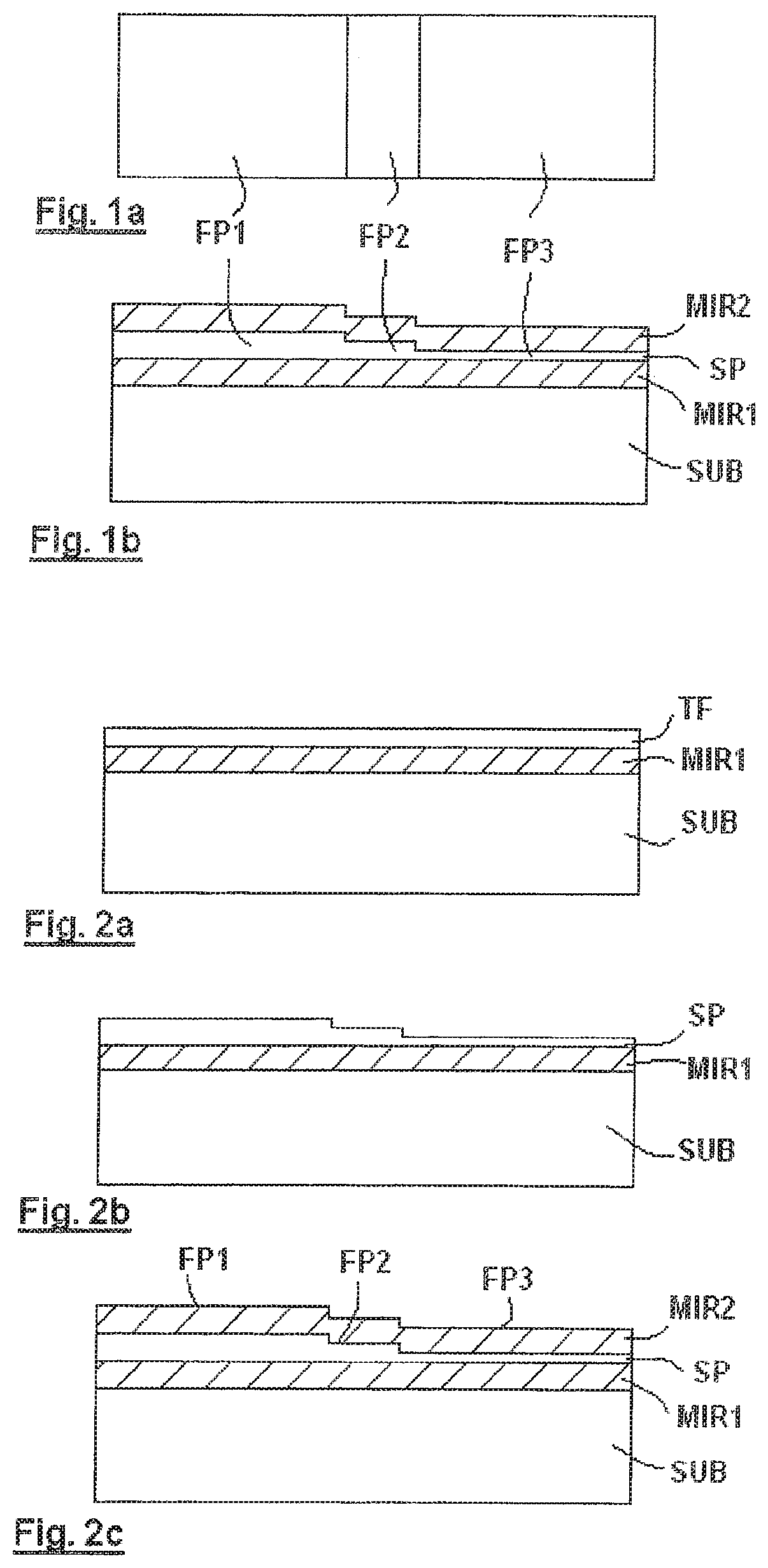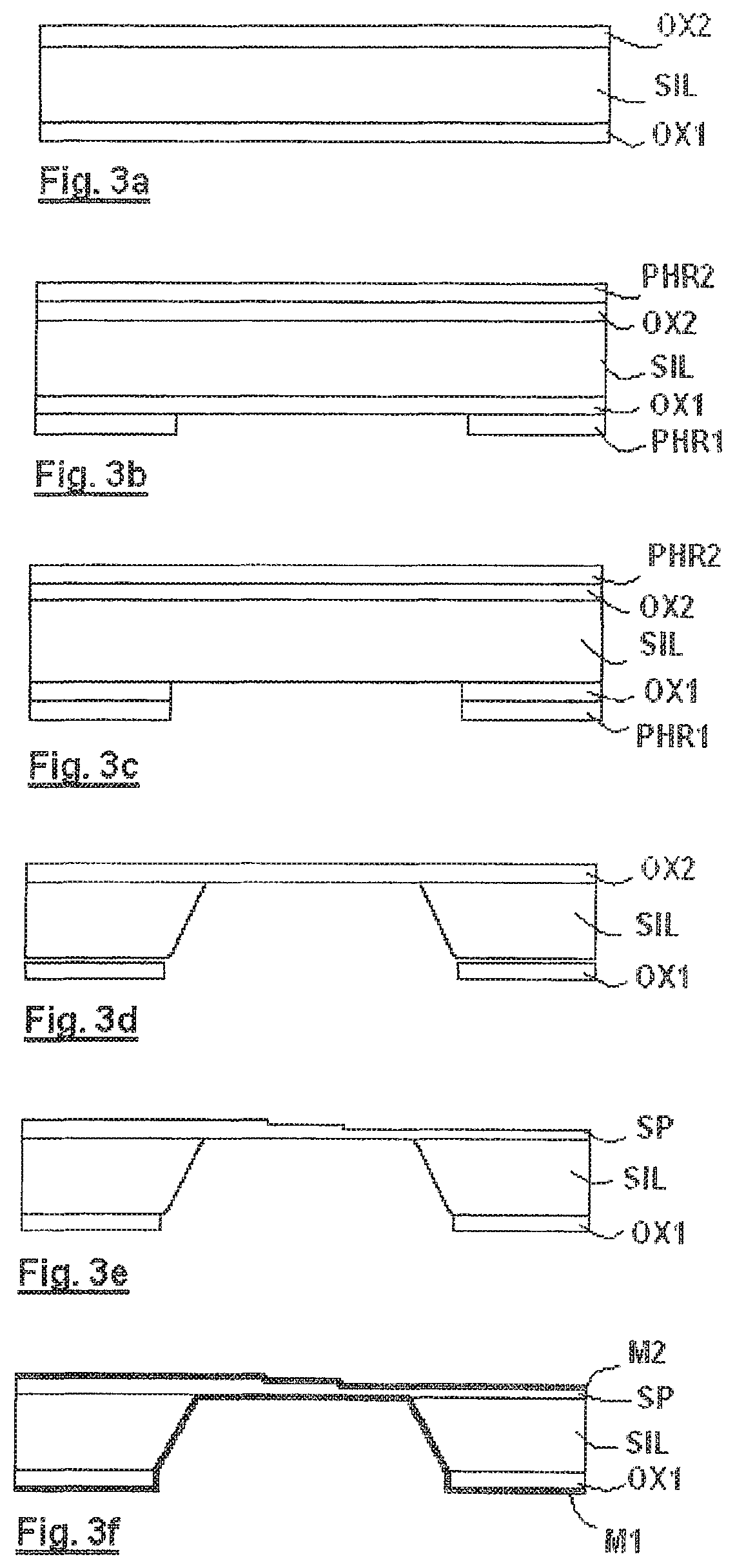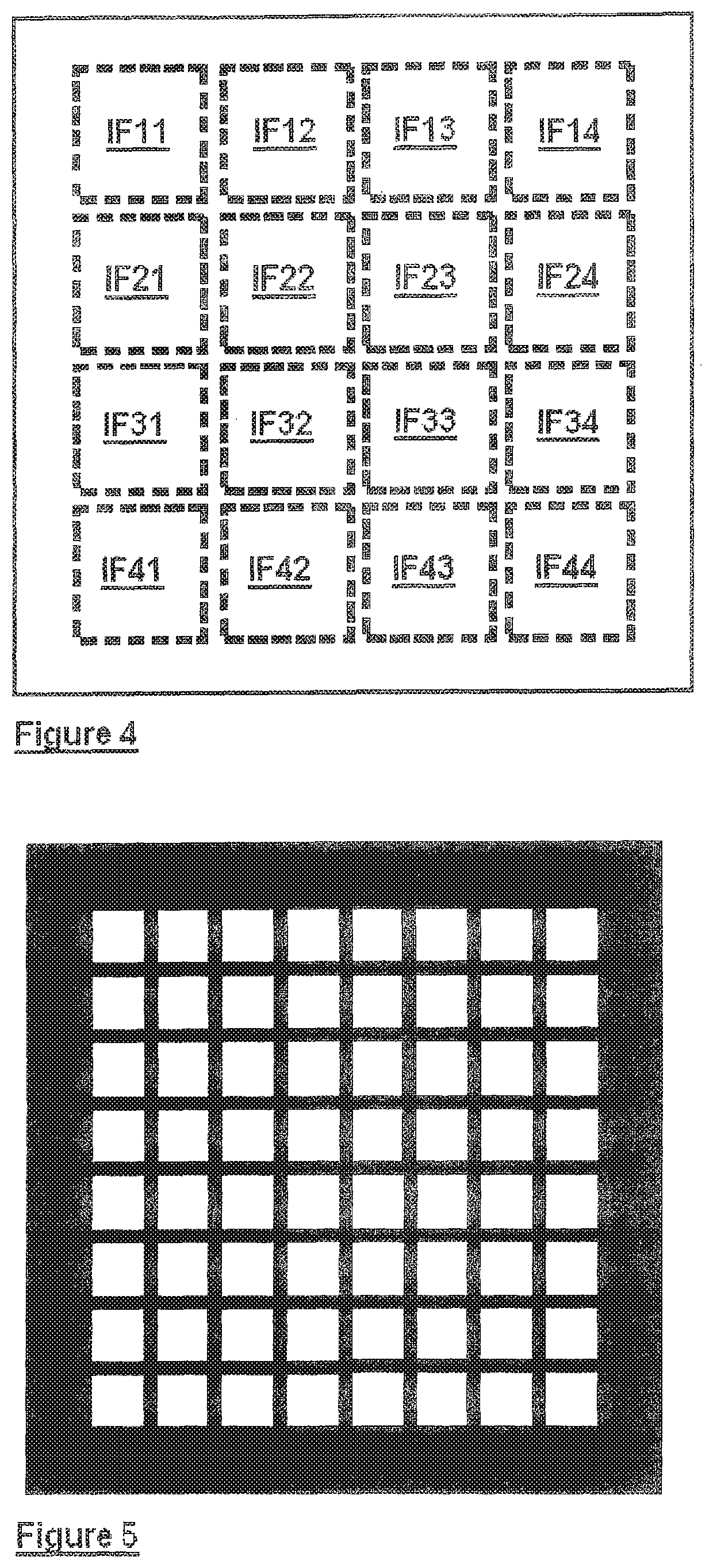Multispectral imaging device with array of microlenses
a multi-spectral imaging and array technology, applied in the field of multi-spectral imaging devices, can solve the problems of difficult to envisage providing unsuitable for identifying variations in optical transmission, and difficult to achieve a large number of filters, so as to reduce the efficiency of the microlenses, increase the light flux in the photosensitive zone by 50%, and preserve the optical function of the microlenses
- Summary
- Abstract
- Description
- Claims
- Application Information
AI Technical Summary
Benefits of technology
Problems solved by technology
Method used
Image
Examples
Embodiment Construction
[0060]The description begins with a filter module having a plurality of generally identical filter cells.
[0061]With reference to FIGS. 1a and 1b, a filter cell comprises three Fabry-Perot type interference filters FP1, FP2, and FP3 in successive alignment so as to form a strip.
[0062]The cell is constituted by a stack on a substrate SUB, e.g. made of glass or silica, the stack comprising a first mirror MIR1, a spacer SP, and a second mirror MIR2.
[0063]The spacer SP, which defines the center wavelength of each filter, is thus constant for a given filter, and varies from one filter to another. Its profile is staircase-shaped since each filter has a surface that is substantially rectangular.
[0064]A first method of making the filter module in thin film technology is given by way of example.
[0065]With reference to FIG. 2a, the first mirror MIR1 is initially deposited on the substrate SUB followed by one or more dielectric layers TF for defining the spacer SP. The mirror is either metallic...
PUM
| Property | Measurement | Unit |
|---|---|---|
| optical thickness | aaaaa | aaaaa |
| wavelength | aaaaa | aaaaa |
| size | aaaaa | aaaaa |
Abstract
Description
Claims
Application Information
 Login to View More
Login to View More - R&D
- Intellectual Property
- Life Sciences
- Materials
- Tech Scout
- Unparalleled Data Quality
- Higher Quality Content
- 60% Fewer Hallucinations
Browse by: Latest US Patents, China's latest patents, Technical Efficacy Thesaurus, Application Domain, Technology Topic, Popular Technical Reports.
© 2025 PatSnap. All rights reserved.Legal|Privacy policy|Modern Slavery Act Transparency Statement|Sitemap|About US| Contact US: help@patsnap.com



